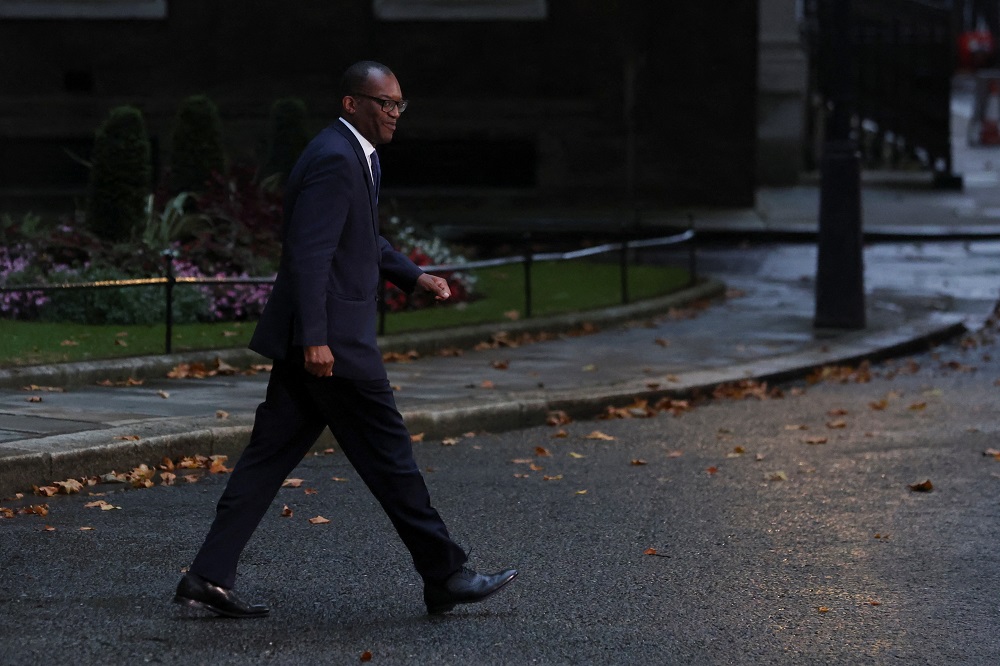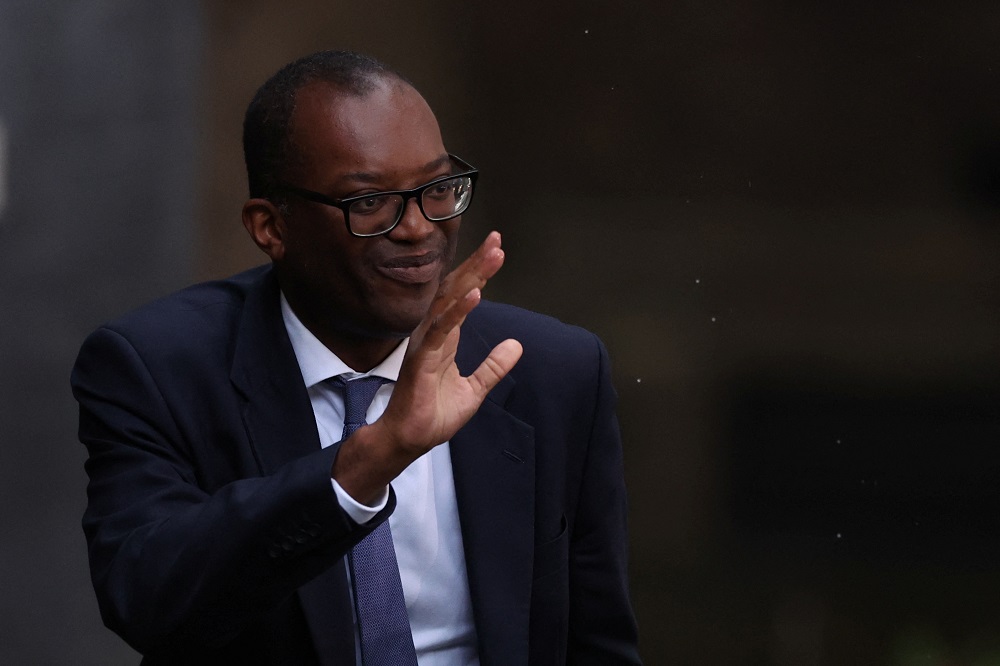

The Pound is at its lowest in 40 years, markets have made their disapproval known, the International Monetary Fund (IMF) has said it was the wrong course and there needs to be a change of direction. The big beast of British politics, Kenneth Clarke, says they got it wrong, people with mortgages and pensions are in despair, economists are scratching their heads, yet the UK Chancellor of the Exchequer, Kwasi Kwarteng, less than one month in the job, says he is sticking with his mini-budget with £45 billion of tax cuts and is not for turning.
Is the UK heading into a financial disaster of its own making, or is Kwasi Kwarteng and the Liz Truss-led Tory Government geniuses with Kwarteng proving to be the best Chancellor the country has seen in a century?
Is he holding his nerve or has he already crashed into an iceberg and all that remains is to send out the death notices?

Today was another terrible day on the markets for the UK, with the Pound still in dire straits and showing no signs of a meaninful recovery.
In order to staunch the bleeding, the Bank of England intervened today, purchasing £60 billion in gilts by way of a government debt buy-back. The move was made to prevent many financial businesses, particularly mortgage companies and pension funds facing the prospect of going bust.
“This repricing has become more significant in the past day – and it is particularly affecting long-dated UK government debt.
“Were dysfunction in this market to continue or worsen, there would be a material risk to UK financial stability. This would lead to an unwarranted tightening of financial conditions and a reduction of the flow of credit to the real economy,” said the Bank of England in an issued statement.
With Kwarteng coming under fire, his prime minister, Liz Truss, is yet to step forward and say she has his back and supports him all the way.
Today was a damning rejection of the UK government’s fiscal policies and a portent of what is to come.
It is said that a week in politics is a long time, but with Kwarteng saying he will reveal his entire fiscal plan on November 23, that could be an eternity. Furthermore, he may very well have to alter his presentation by then.
Cutting taxes across the board to be paid for with massive borrowing was an eyebrow raising moment. It hasn’t gone down well with the markets. British bonds have taken a beating. The Pound has fallen against the dollar from $1.37 in October 2021 to $1.06 today.
The question is, can Kwarteng avert an economic disaster and a winter of discontent? Ceding control over interest rates and the exchange rate is risky business. Kwarteng and Truss may very well be digging a very big hole for the country.
As Margaret Thatcher once said, “You can’t trick the markets.”
In an effort to get growth above 2.5 per cent, Kwarteng is prepared to gamble on his ability to stimulate the economy with tax cuts while resorting to borrowing.
“Rising unemployment and the recession have been the price that we have had to pay to get inflation down. That price is well worth paying,” said Norman Lamont when he was in charge of the country’s coffers.
Hmmm! Is history repeating itself.
Let’s hope Kwarteng doesn’t have to say “Je ne regrette rein”.

Already many in his party are growing restless and are unhappy with his announcements. Some believe it is a mistake to cut the top income tax rate when the Government’s fiscal room for manoeuvre is so limited.
Simon Hoare, MP said: “In the words of Norman Lamont: ‘Today has been a difficult and turbulent day.’
“These are not circumstances beyond the control of the Government and Treasury. They were authored there. This inept madness cannot go on.”
Is Kwarteng acting in a fiscally responsible manner and does he have a credible plan?
The UK must rue the day it decided to walk away from the European Union at a time when it will desperately need readily accessible export markets.
Kwarteng may very well see the main threat as recession not inflation and is looking to put that monster back in its cave and so is risking financial chaos. He perhaps has factored that with two years out from a general election, there is enough time to turn things around.
Is this another Black Wednesday moment?
Let’s go back 30 years ago, September 16, 1992 when the UK Government was forced to withdraw sterling from the European Exchange Rate Mechanism (ERM) after a failed attempt to keep its exchange rate above the lower limit required for the ERM’s participation. This cost the country some £3.14 billion.
It saw George Soros making over £1 billion in one day selling sterling in anticipation of a devaluation.
The credibility of the Tory government then led by John Major with Norman Lamont serving as Chancellor was damaged. It was a dark day for the Tory party and it lost the subsequent general election.






Comments